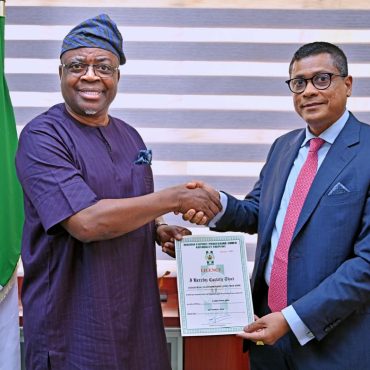Listeners:
Top listeners:
-
play_arrow
Kapital FM 92.9 The Station that Rocks!

By Oduyemi Odumade
The House of Representatives has urged the Central Bank of Nigeria to implement the monetary policy adjustments to stabilize the currency, address speculative activities in the forex market, and increase the withdrawal limit of the naira to reduce the pressure on dollars and other foreign currencies.
The House also urged the Federal Government to formulate policies and structural Reforms to reduce corruption and promote economic diversification within the nation’s economy.
This was a sequel to the adoption of a motion by a member from Bauchi State, Mr Ismaila Haruna-Dabo at plenary.
The lawmakers observed that 90% of Nigeria’s total export earnings are from oil, but changes in the price of oil around the world have a big impact on the country’s foreign exchange market, which explains why the naira has continued to depreciate.
According to him, the depreciating naira makes imported goods more expensive, leading to higher inflation rates.
This increased cost of living he said disproportionately affects the most vulnerable citizens, as they struggle to afford necessities, which are now glaring across the country.
“Nigeria’s foreign exchange inflows are lagging despite unification in June, with high demand for foreign currency and limited access to official markets incentivizing black market purchases, the naira has lost a greater percent of its value against the dollar, falling from N778.602/$ as of September 26, September 2023, and nearly N1000/$ at the parallel market, making it the first time Nigeria has liberalized the foreign exchange market.
Mr. Haruna-Dabo added that foreign investors may be deterred from investing in Nigeria, fearing potential currency losses, which is capable of stunting economic growth and hindering the creation of new job opportunities for unemployed Nigerian youths.
He stated that a weaker and depreciating Naira could increase Nigeria’s external debt servicing costs, potentially reducing government spending on critical sectors like healthcare and education.
The lawmakers said the Central Bank of Nigeria (CBN) frequently uses its foreign reserves to stabilize the naira, but that this can deplete its reserves, making the country vulnerable to economic shocks.
Adopting the motion, the House called on the Federal Government to promote exportation and reduce importation by enhancing foreign investors’ confidence in its Fiscal and Monetary Policies.
It mandated the Committees on Banking Regulations and National Security and Intelligence to interface with the CBN to initiate compliance strategies.
The House also mandated the Committee on Banking Regulations to investigate the use of the US Dollar and other foreign currencies as legal tender for domestic transactions in Nigeria.
Edited By Grace Namiji
Written by: Elizabeth David
Adjustments Currency Implement KFM929 Monetary policy REPS Stabilise
Similar posts
Recent Comments
No comments to show.-

DayBreak on Kapital Show
With Ife and Bendodo
Welcome to our extraordinary breakfast show, where the sun has just begun to peek over the horizon, and the world is ripe with endless possibilities. From the early hours of 5AM to 10AM on weekdays, we invite you to indulge in a symphony of captivating content that will set the perfect tone for your day.
close Top popular
Chart
-
-
play_arrow
Sunshine Tommy Blues
-
play_arrow
-
-
play_arrow
Red Frank Lee
-
play_arrow
-
-
play_arrow
Eclipse Donna May
-
play_arrow
-
Copyright Kapital FM 92.9 Abuja - The Station that Rocks!









Post comments (0)